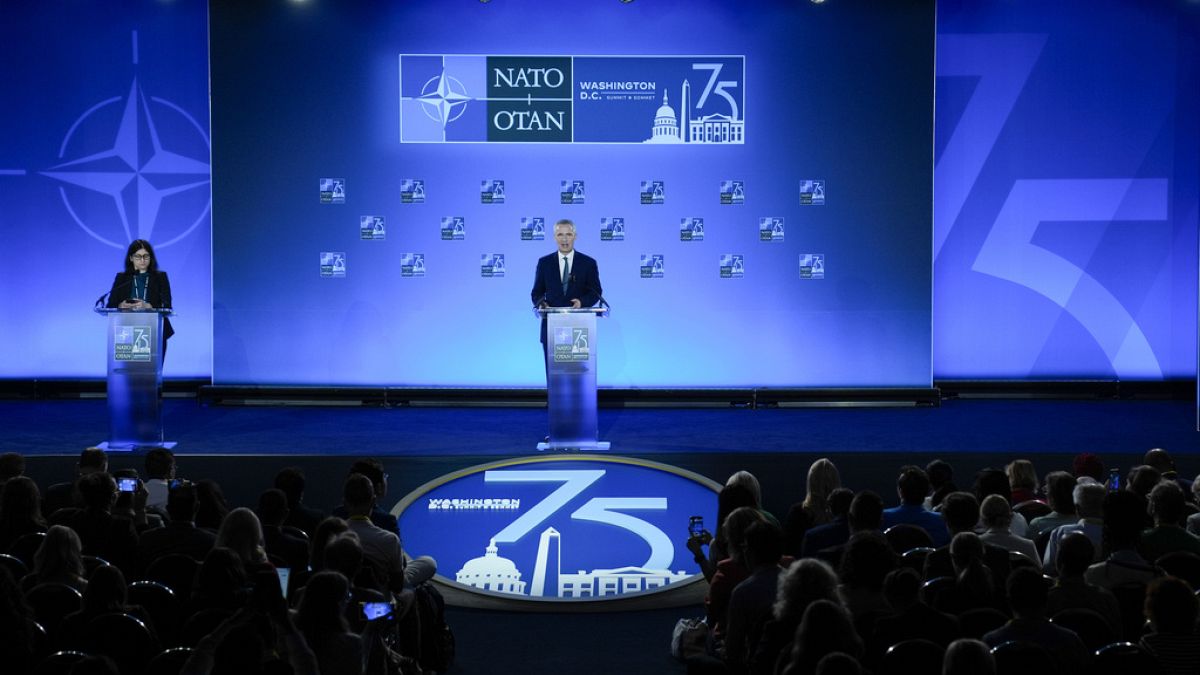In a historic move, all 32 members of NATO have united to condemn China as a “decisive enabler” of Russia’s war against Ukraine. This stern rebuke signals a shift in focus for the military alliance, as concerns grow over Beijing’s nuclear arsenal and capabilities in space. The final communiqué approved at the NATO summit in Washington emphasizes the shared security concerns arising from Russia and its supporters, particularly China. Despite China denying military aid to Russia, NATO members accuse China of enabling the conflict by providing large-scale support to Russia’s defence industry.
NATO member countries have called on China to cease all material and political support to Russia’s war effort, citing the negative impact on China’s interests and reputation. The alliance highlights China’s partnership with Russia as a key factor in increasing the threat posed by Russia to its neighbors and Euro-Atlantic security. NATO Secretary-General Jens Stoltenberg emphasized China’s role in providing the equipment and tools necessary for Russia to build weapons used in the conflict. This strong stance against China marks the first time all NATO allies have united in a statement against the country.
The Chinese embassy in Washington has refuted the accusations, stating that China is neither a creator of nor a party to the Ukraine crisis. The embassy spokesperson emphasized that China does not provide weapons to the conflicting parties and strictly regulates the export of dual-use items. The embassy defended China’s trade with Russia as transparent and legitimate, dismissing NATO’s claims of Chinese support for Russia’s military efforts. However, NATO leaders continue to highlight China’s enabling role in the conflict and stress the need for China to halt its support to Russia.
In Washington, President Joe Biden underscored the importance of NATO not falling behind Russia in weapon production, especially with the assistance of China, North Korea, and Iran. The NATO summit in Washington has seen the participation of partners from the Indo-Pacific region, including Australia, New Zealand, Japan, and South Korea. While not official members of the alliance, these nations play a crucial role in enhancing dialogue and cooperation on cross-regional challenges. The final declaration at the summit affirmed the significance of Indo-Pacific partners to NATO and outlined plans for joint projects to support Ukraine, strengthen cyber defense, counter disinformation, and collaborate on artificial intelligence.
The united front against China at the NATO summit represents a significant shift in the alliance’s stance towards Beijing. By openly condemning China as a key enabler of Russia’s actions in Ukraine, NATO members are sending a clear message about their shared security concerns and the need for China to reassess its support to Russia. As tensions in Europe continue to escalate, NATO’s focus on China’s involvement in the conflict underscores the evolving nature of global security challenges. With the Indo-Pacific partners also committing to cooperation on key security issues, the alliance is poised to strengthen its collective response to emerging threats.
Overall, the NATO summit in Washington has highlighted the growing importance of addressing shared security concerns in the face of evolving geopolitical dynamics. The alliance’s call for China to cease its support to Russia in the conflict with Ukraine reflects a unified approach to safeguarding Euro-Atlantic security. As NATO members and their Indo-Pacific partners forge closer ties to tackle cross-regional challenges, the focus on joint projects and collaboration underscores the commitment to enhancing collective security and addressing emerging threats in an increasingly complex global environment.











